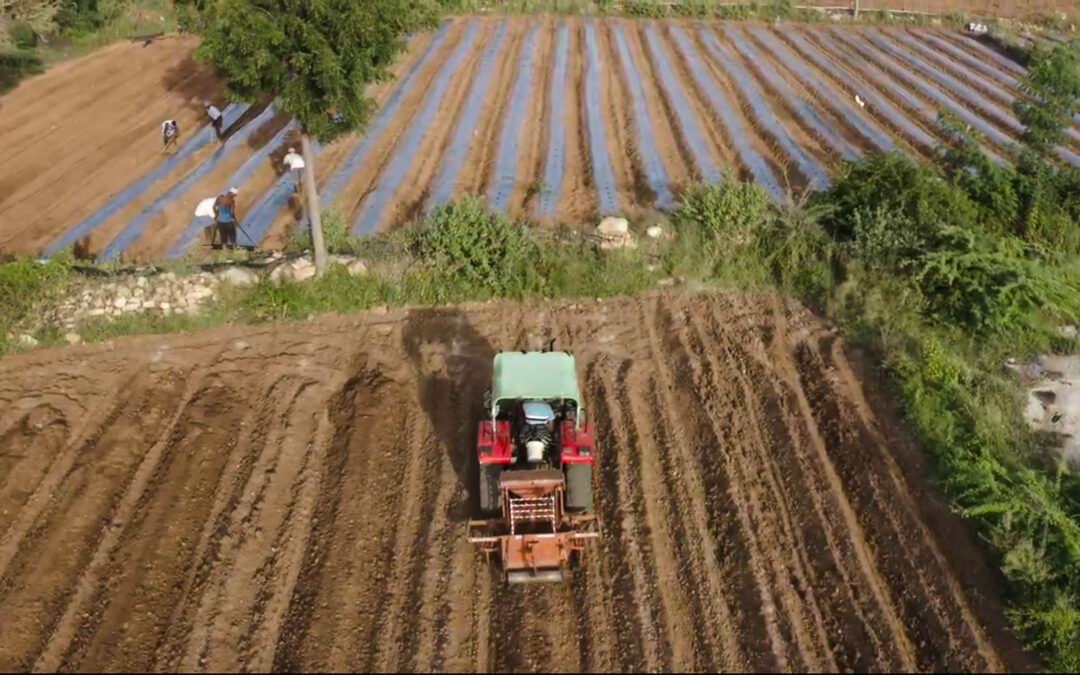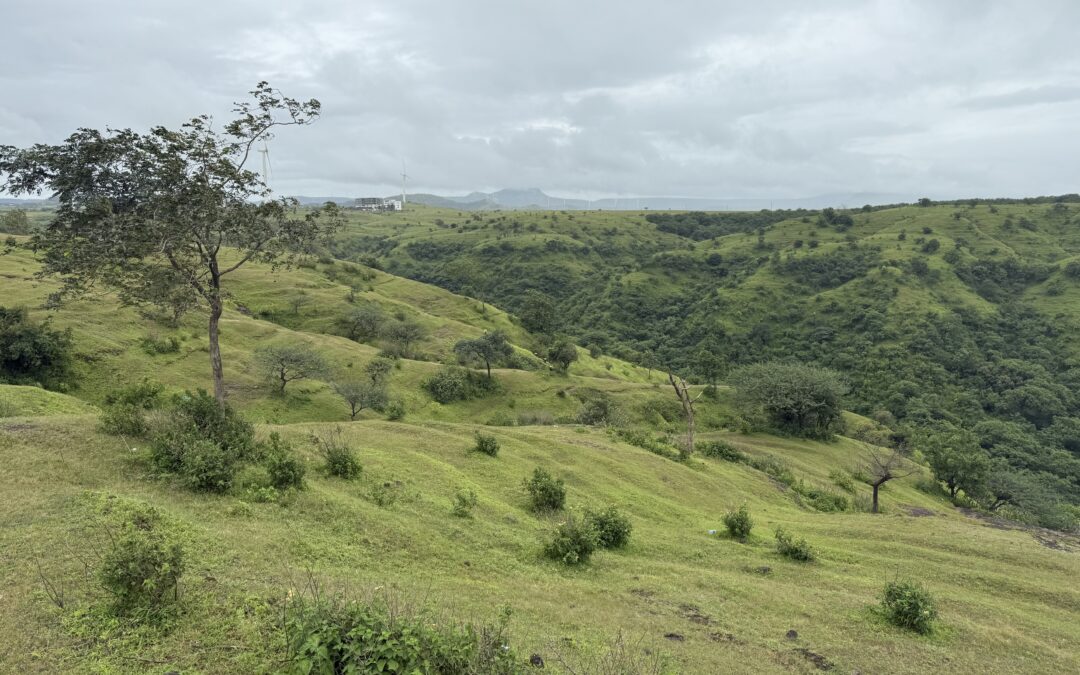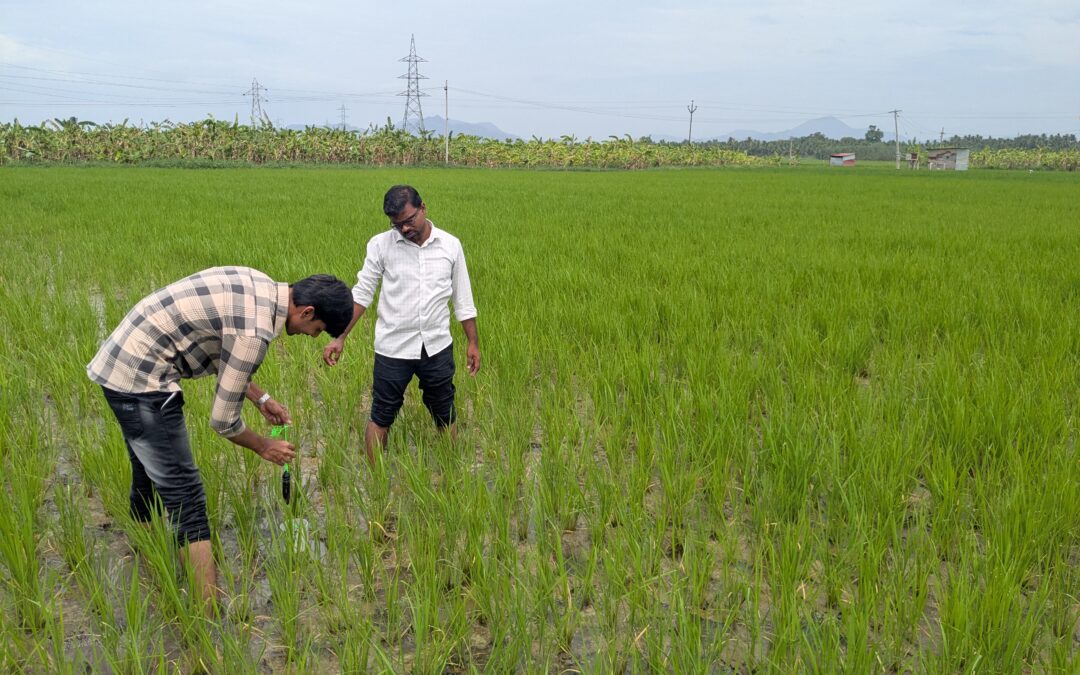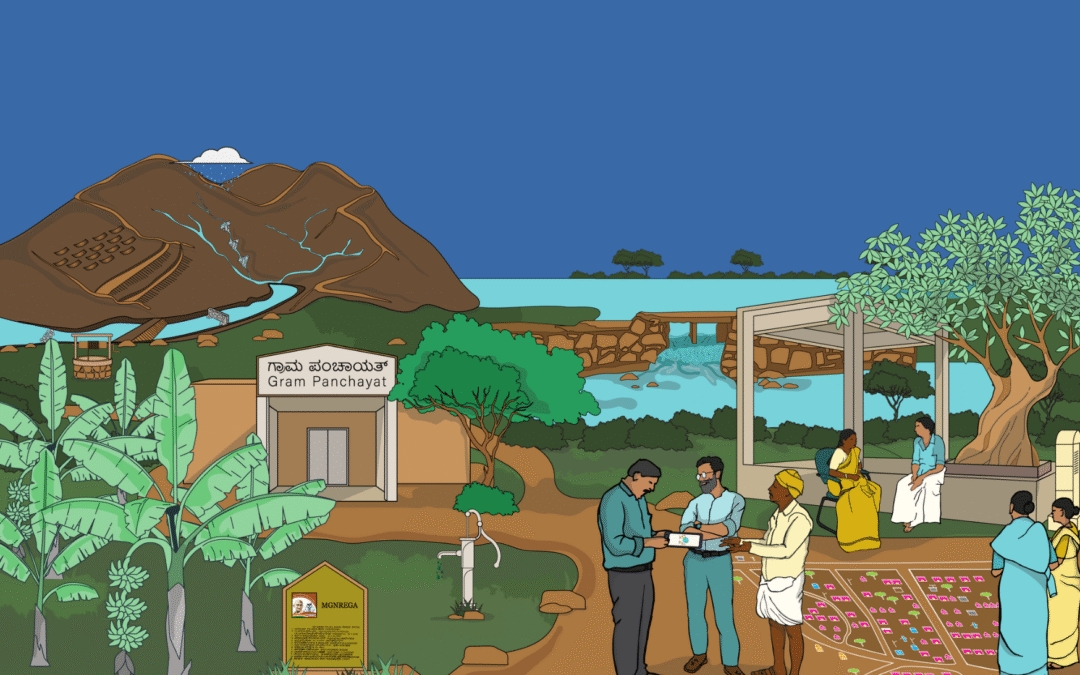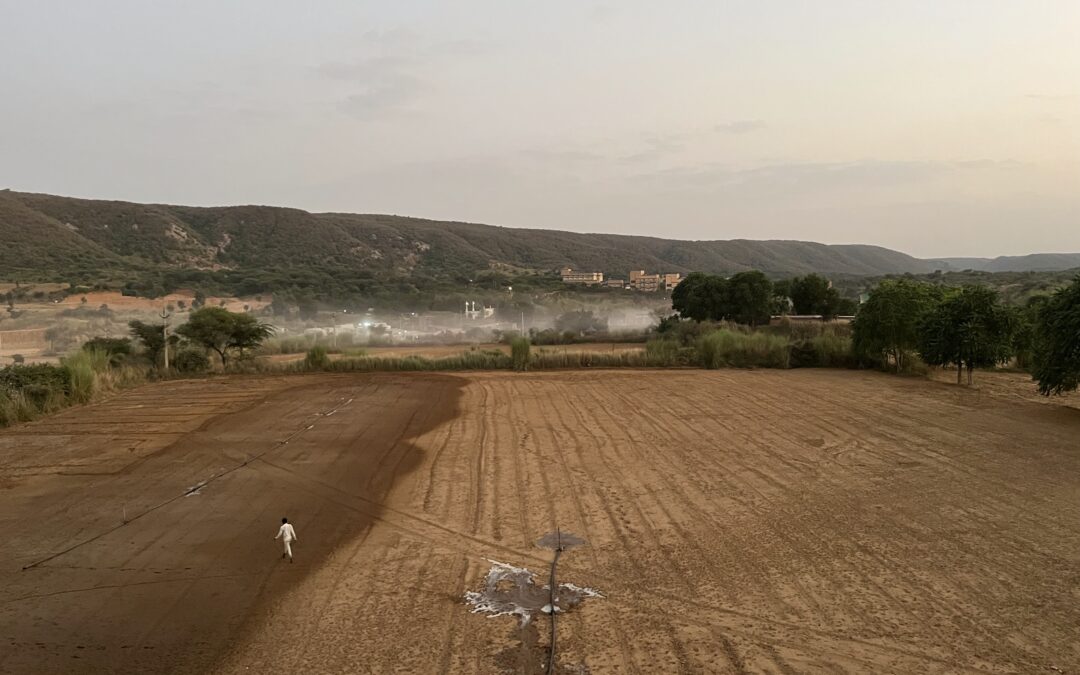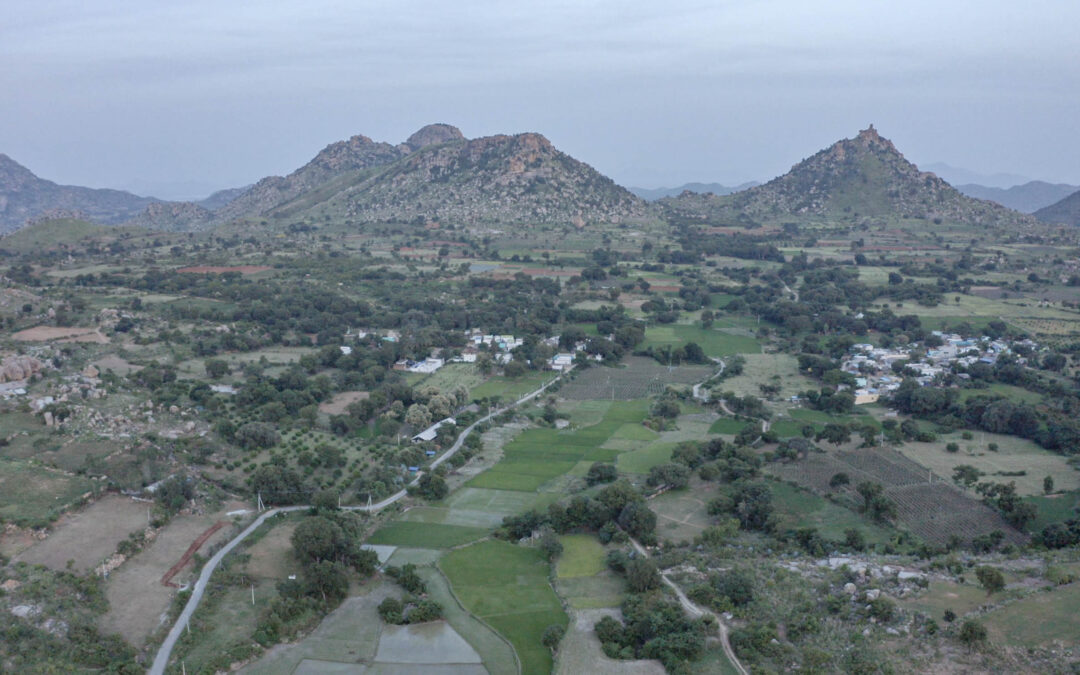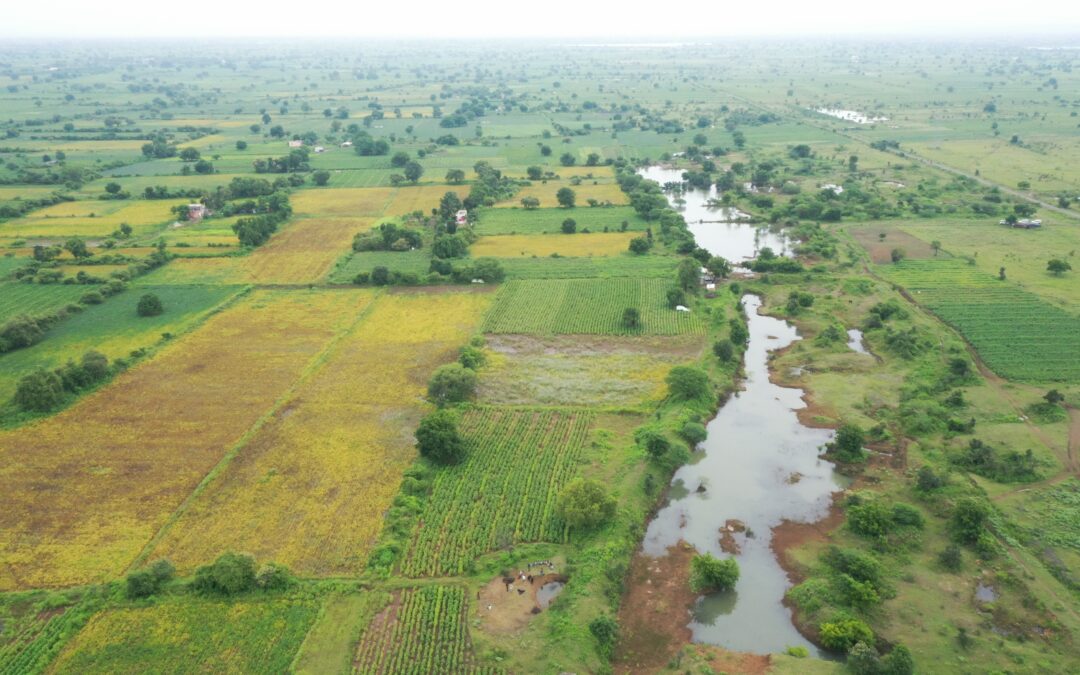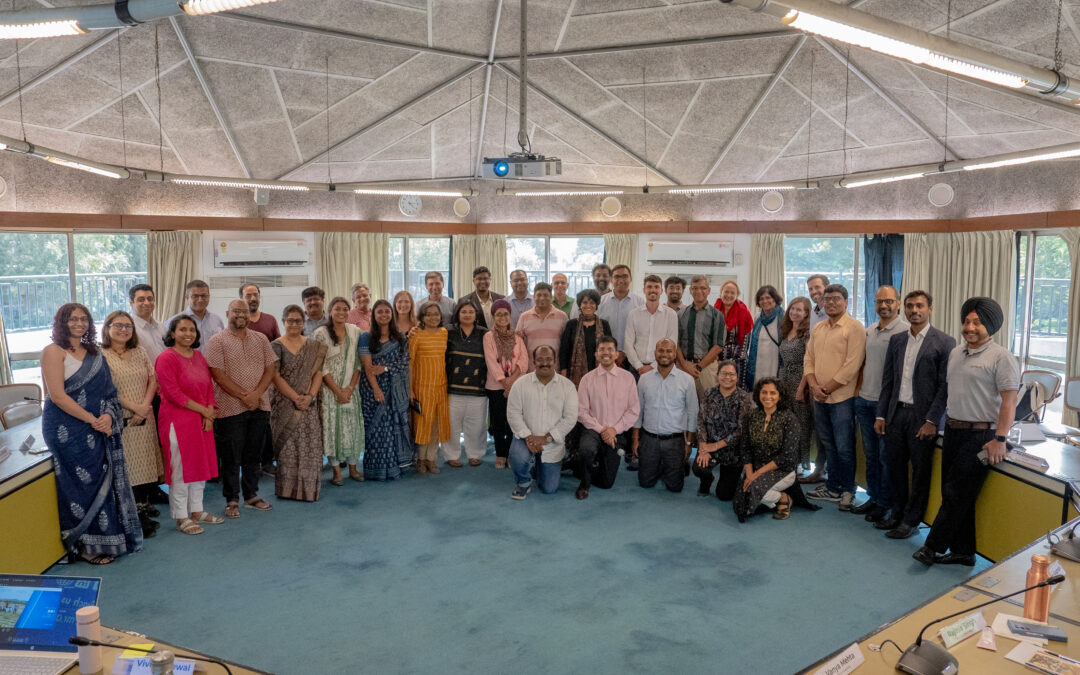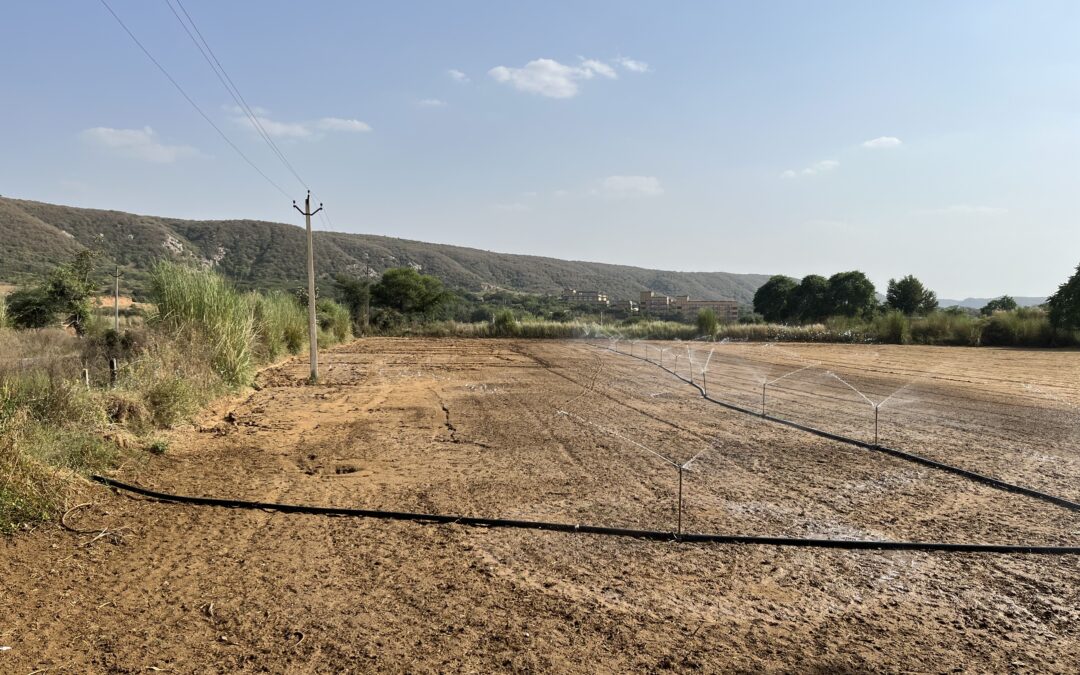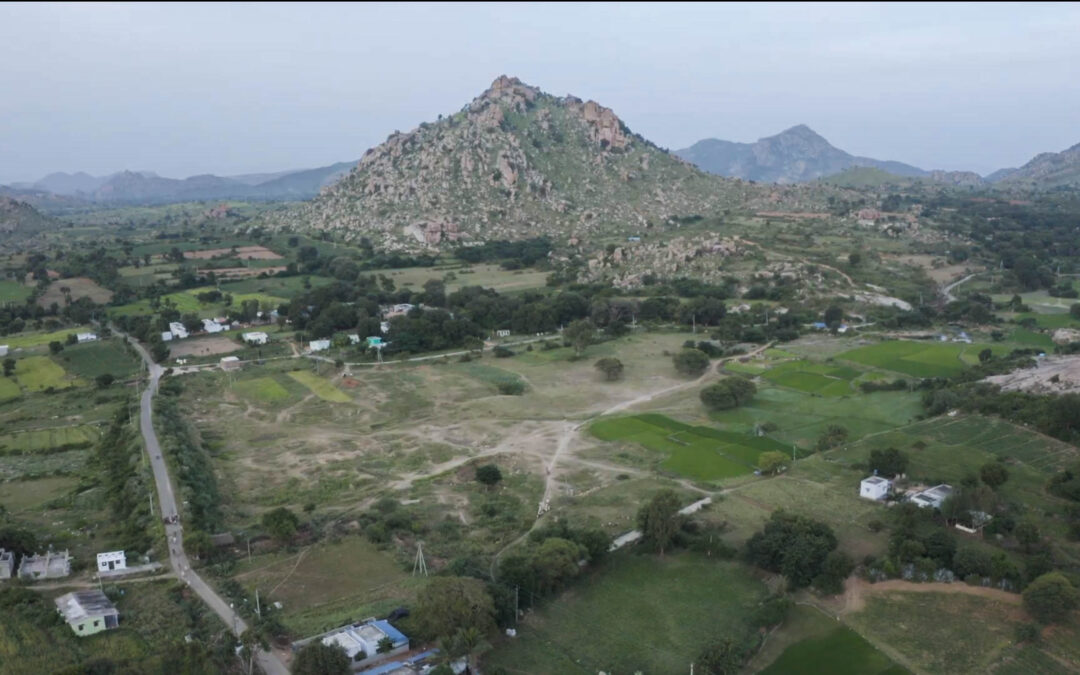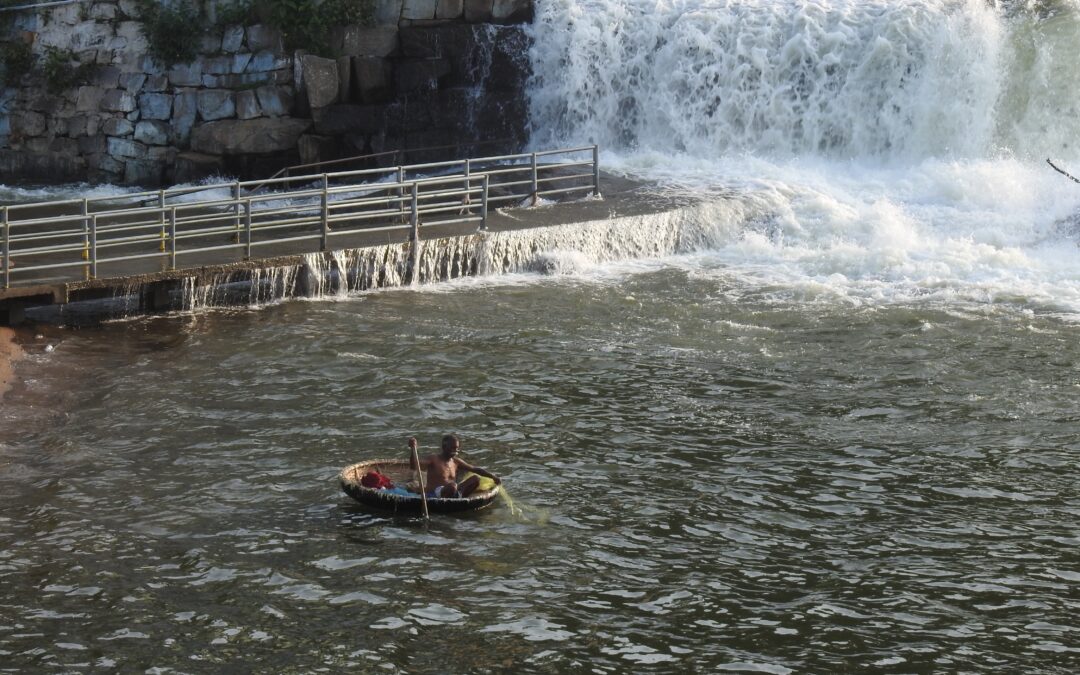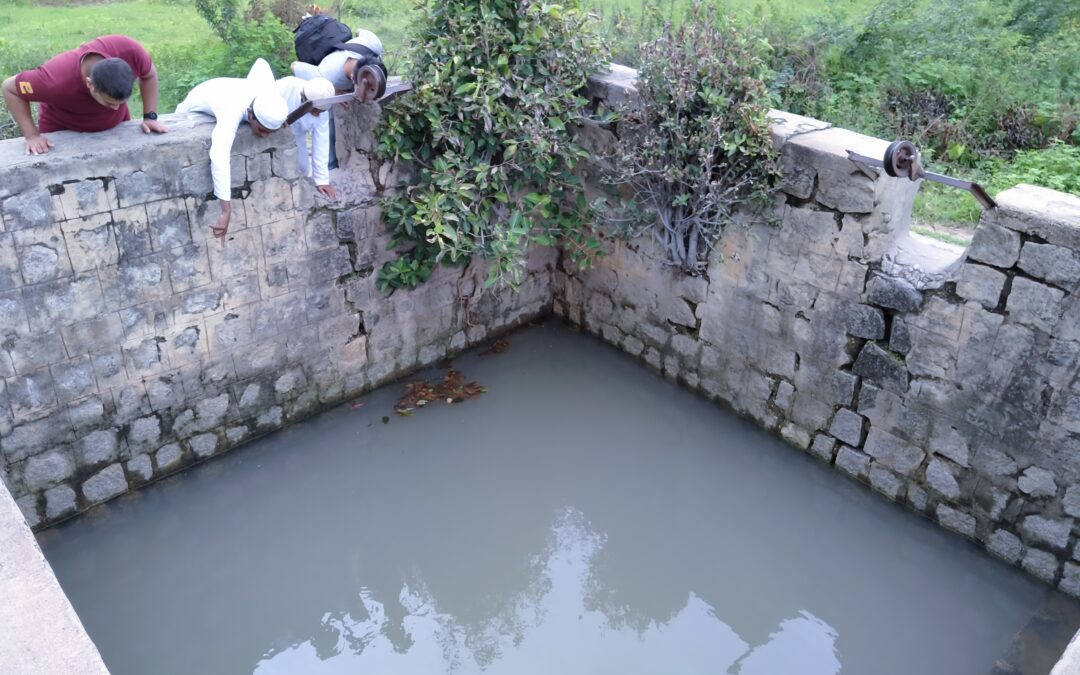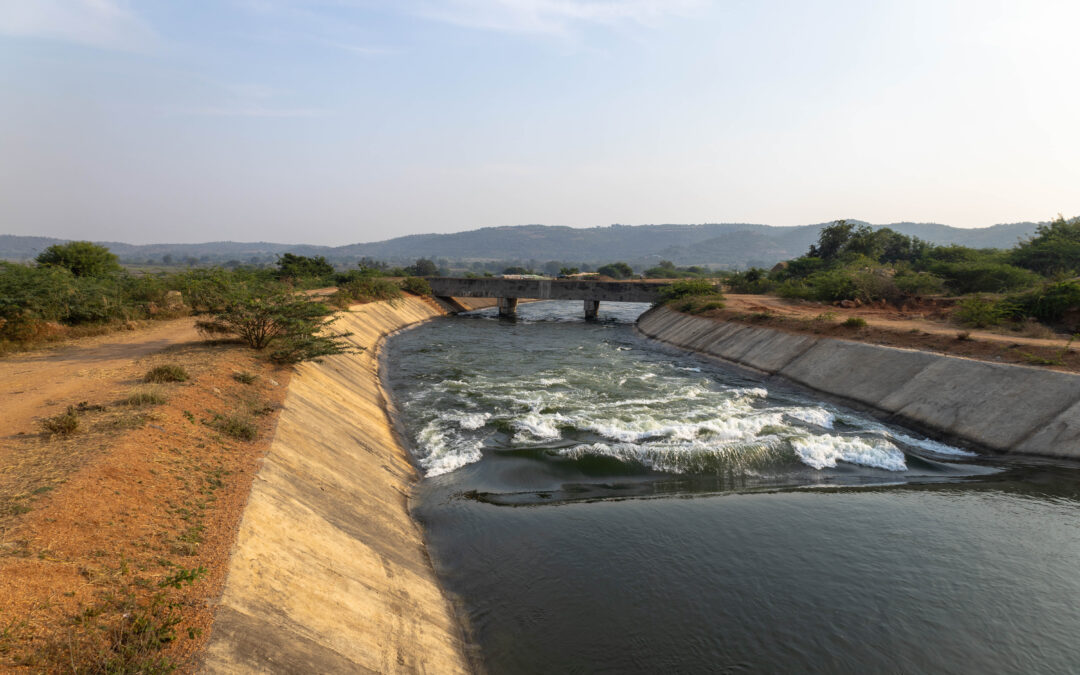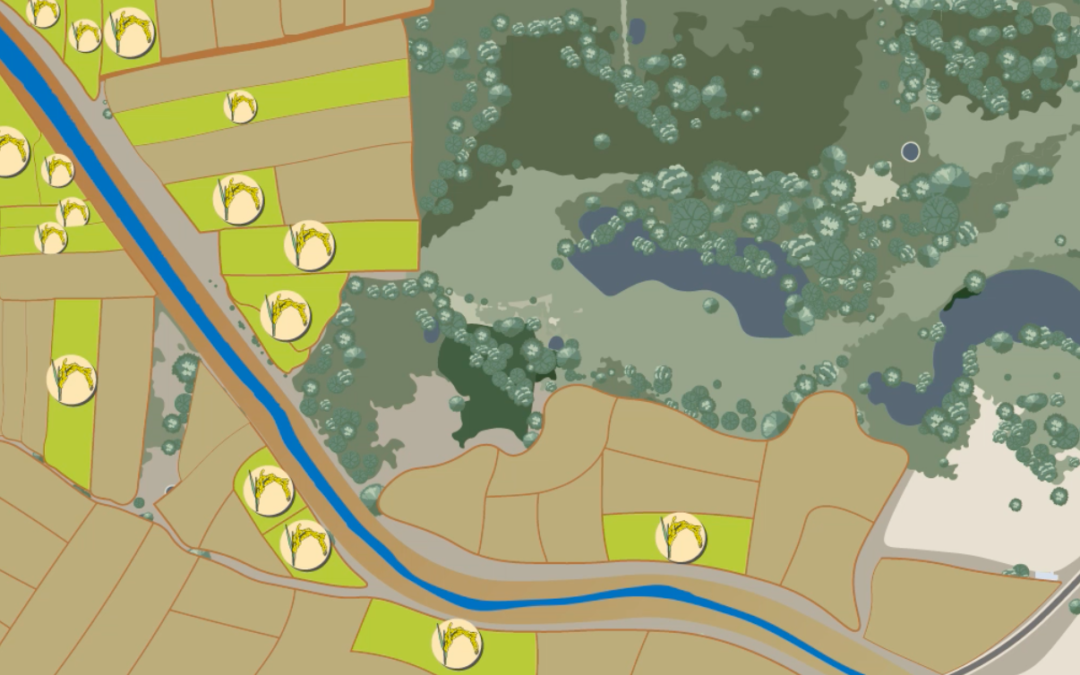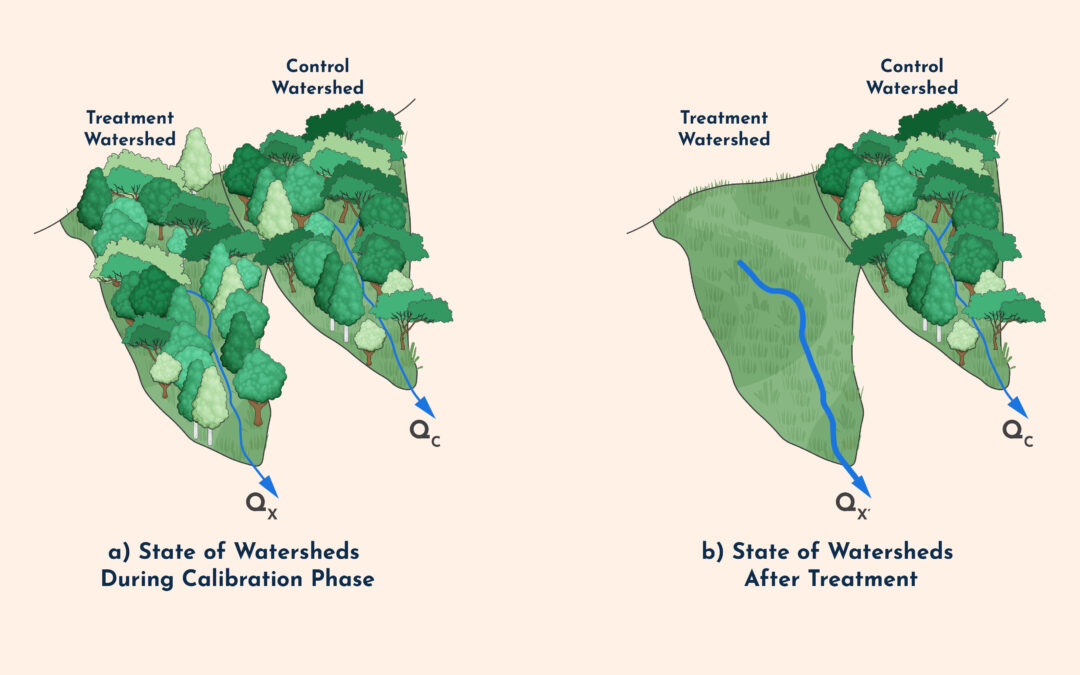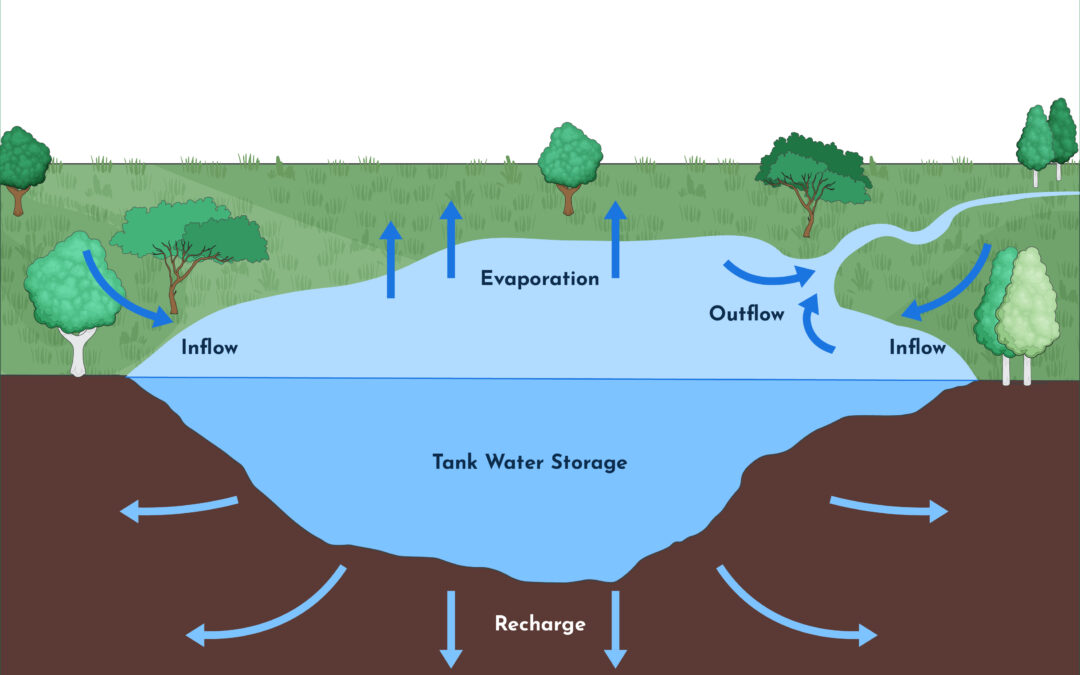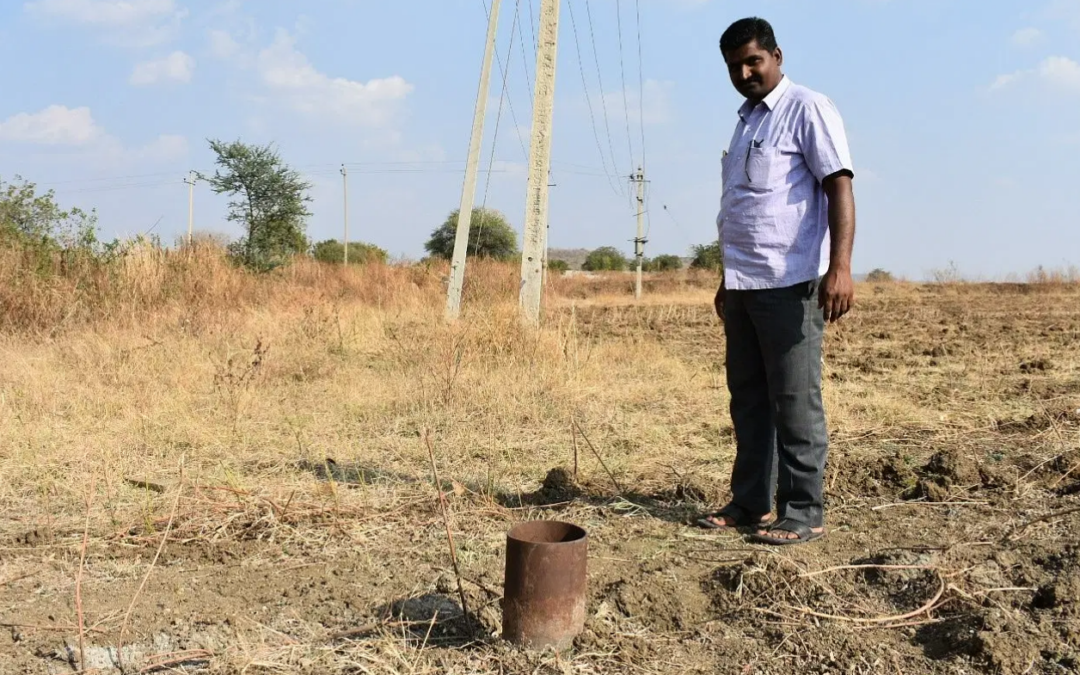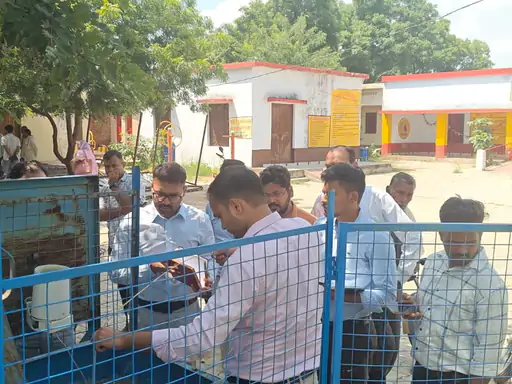Technical Consulting
The Technical Consulting programme enables better decision-making in the natural resources management sector through the use of data, models, and evidence-based approaches.

Impact Evaluation
Water Security Indicators
Water Data
Source Sustainability
Past Projects
Publications
We are systematising Monitoring, Evaluation, and Learning (MEL) for the water sector and developing simple, accurate and easy-to-measure indicators on the state of water security.
Monitoring, Evaluation, and Learning
Water stress is increasing rapidly across India and climate change is increasing the frequency and intensity of droughts and floods. To address these issues, governments, Corporate Social Responsibility departments, and international agencies are making significant investments in water conservation and climate adaptation. To ensure that investments in the sector yield optimal benefits, the Technical Consulting programme is building evidence around the effectiveness and efficiency of water interventions.
We are conducting impact evaluations of three community-based groundwater management approaches in Maharashtra, Karnataka, and Andhra Pradesh, and building a MEL toolbox.
These evaluations are technically rigorous and focus on the improvement of intervention design.
1. Impact Evaluation of Recharge Pits in Maharashtra
Partners: Environmental Defense Fund, Save Groundwater Foundation
This project aimed at evaluating an innovative water conservation technique that is being implemented in the drought-prone district of Jalna in Maharashtra. This intervention can reduce waterlogging and increase groundwater recharge in regions carpeted by low-conductivity black cotton soils.
2. CLART and MGNREGA Planning Evaluation in Karnataka
Partners: Environmental Defense Fund, Arghyam, Foundation for Ecological Security, Socion
We evaluated the impact of a programme aimed at improving the planning of water conservation structures built under the Mahatma Gandhi National Rural Employment Guarantee Act (MGNREGA) in northern Karnataka.
3. Evaluation of Groundwater Collectivisation in Anantapur, Andhra Pradesh
Partners: Environmental Defense Fund, WASSAN
The third part of our MEL work focuses on evaluating the impact of a project for the sustainable management of groundwater through a shared pipeline network managed by water user associations.
4. MEL Toolbox
Partner: Environmental Defense Fund
The toolbox will be akin to a directory of impact evaluation tools and methodologies, and offer a generalised protocol for how to approach MEL in the water sector in the Indian context. Through tools that can be deployed for a specific intervention or geography, it seeks to reduce the cost and expertise required to conduct evaluations and foster a coherent understanding of MEL among diverse stakeholders.
The scope of the toolbox is threefold:
- It begins with an understanding of the challenges the water sector faces with respect to impact evaluation and provides appropriate solutions.
- It facilitates and improves impact reporting of watershed interventions.
- Over the long term, we shall integrate the toolbox into organisations’ workflows. This entails iterative development to make the toolbox relevant to different kinds of organisations.
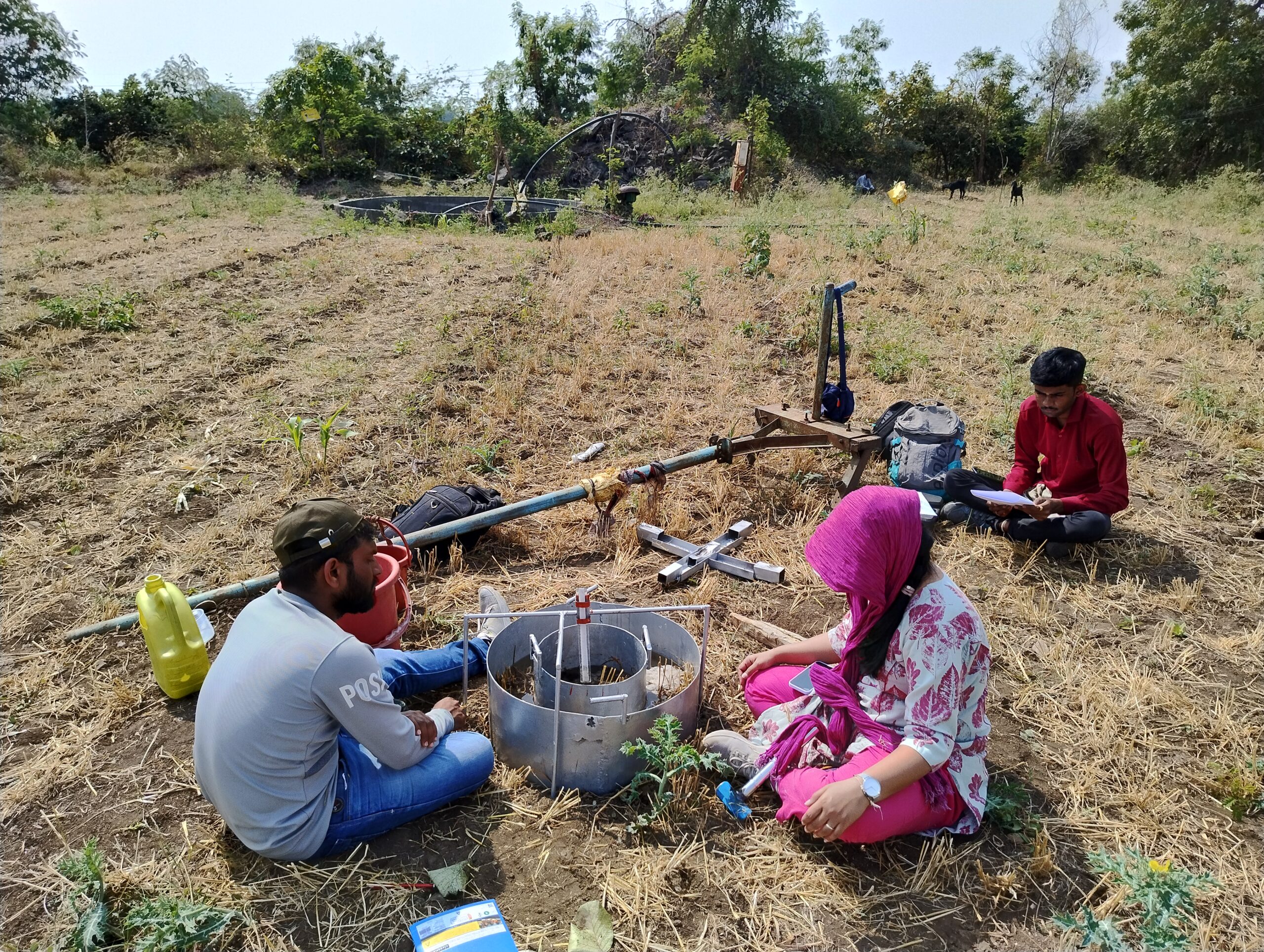
WELL Labs’ researchers and field staff use a double ring infiltrometer to assess the impact of JalTara pits in Maharashtra’s Jalna district. Photo by Lakshmikantha Narasipura
Water Security Indicators
A major challenge in the water sector is the ability to accurately and holistically gauge the impact of interventions. To address this issue, WELL Labs is working with the Hindustan Unilever Foundation to develop simple, evidence-based and easy-to-measure indicators on the state of water security. These indicators will focus on outcomes rather than inputs to track actual progress towards water security.
WELL Labs’ tool Jaltol, with its capability of using remote sensing to measure changes in various indicators, is an integral part of this initiative. Over 2024-2025, we are partnering with various watershed organisations to:
- Validate the utility of proposed water security indicators.
- Collect feedback on the Jaltol web app.
- Conduct field validations of the Land Use Land Cover maps based on which we derived the indicators.
Improving India-WRIS with the Ministry of Jal Shakti
The India-Water Resources Information System (WRIS), built by the Ministry of Jal Shakti’s National Water Informatics Centre, is a repository of water resources data from across India.
WELL Labs is collaborating with the centre to:
- Redesign the India-WRIS portal to improve user experience and ease of data access.
- Boost data validation and coherence through secondary analysis.
- Develop use cases for the available data and promote innovative applications of the data.
- Explore the feasibility of building a digital public infrastructure where organisations can build APIs and associated software using India-WRIS data to address water-related risks and provide services. This could be analogous to the Unified Payments Interface (UPI) for digital transactions in India.
Source Sustainability Strategy for Jal Jeevan Mission Assam
While the state of Assam has abundant water resources, it faces significant challenges in securing sustainable and safe water supply for all its residents. These include deep and inaccessible groundwater in the foothills, arsenic and fluoride contamination, and climate change-driven water supply disruptions.
WELL Labs is working with Jal Jeevan Mission Assam to create a strategic roadmap with specific recommendations to enhance the resilience and source sustainability of water supply systems in Assam.
Past Projects
1) Synthesising the State of the Science on Hydroclimatic Modelling and Setting Research Priorities
Partner: Rural Evidence and Learning for Water (REAL-Water)
WELL Labs is part of Rural Evidence and Learning for Water (REAL-Water), a consortium of partners led by Aquaya and funded by the United States Agency for International Development (USAID). It develops and evaluates strategies for expanding access to safe, equitable, and sustainable rural water services.
Under this larger mission, we are developing a comprehensive knowledge base to identify points of consensus and contention related to hydroclimatic modelling in India. We conducted 16 in-depth interviews with scientists and government officials to gather expert opinions on the state of hydroclimatic modelling in India and identify priority areas for further research. We documented key insights from these interviews in a report and submitted it to the Ministry of Jal Shakti.
We also organised a roundtable on July 19 in New Delhi, where scientists, practitioners and government officials charted the way forward on how to improve decision-making based on hydroclimatic models.
2) Rural Water and Sanitation Report
Partner: The/Nudge Institute
We published a report providing an overview of the emerging challenges and livelihood opportunities in rural water, sanitation, and hygiene (WASH) in India for The/Nudge Institute. It incorporated insights shared by WASH experts from across India, who took part in the two listening circles we organised on the subject.
The report was a part of the research to inform the design of the second edition of the Ashirvad Water Challenge.
Publications
A Collective Path to Sustainable Groundwater Use in Semi-Arid India
By helping farmers share groundwater through collective networks, WASSAN’s Groundwater Collectivisation Programme aims to improve irrigation access, boost farm incomes,…
When Wells Fill Fast and Dry Faster: Lessons from Nashik’s Basaltic Uplands
In Nashik’s basaltic uplands, wells fill quickly during monsoon but start to dry by February. Farmers see surface storage, efficient…
Measuring What Matters: Communities Assessing Water Solutions
Community-led continuous monitoring is key to assessing aquifer health, groundwater sustainability, and the impact of soil and water interventions.
Improving Decision-Making in the Water Sector | Insights from the Technical Consulting Programme
The Technical Consulting team shares insights regarding how we can ensure the optimal use of limited resources and why certain…
Low-Cost, High-Impact: How Communities Can Monitor Their Water Futures
This simple, low-cost water balance method helps improve understanding of how effectively a percolation tank recharges groundwater.
Transforming Rainfed Agriculture with Groundwater Collectivisation
WELL Labs and Environmental Defense Fund are assessing a groundwater collectivisation programme designed to promote equitable and resilient management of…
Can Recharge Pits Address Waterlogging and Drought in Marathwada? | Initial Insights
Recharge pits aim to tackle waterlogging and groundwater recharge in Jalna's black soil regions, but design improvements are critical for…
Transforming Monitoring, Evaluation, and Learning in the Water Sector: Lessons from the MEL Roundtable
At the MEL Roundtable experts discussed how monitoring, evaluation, and learning practices can transform water security efforts in India.
Why Jalna’s Wells Run Dry: Understanding Water and Soil in Drought-Prone Maharashtra
WELL Labs has partnered with the Environmental Defense Fund to scientifically evaluate Jaltara, a water-saving intervention developed by the Save…
Jaltol and Johads: Tracking the Impact of Watershed Management in Rajasthan
Ahead of the Data for Water Security Hackathon, we put together this use case to help demonstrate how Jaltol could…
Impact Assessment of Groundwater Collectivisation in Andhra Pradesh and Telangana
This study assesses WASSAN’s groundwater collectivisation programme in Andhra Pradesh and Telangana, which improved irrigation access and reduced borewell drilling…
Wading Through The Complexity of India’s Surface Water Resources
Chapter published in The Hindu e-Books
Monitoring and Evaluation of Recharge Pits in Marathwada
This study highlights the need for a holistic, landscape-level approach to water management in Maharashtra’s basaltic regions, ensuring that interventions…
MGNREGA Planning in Karnataka: Assessment of Digital Tools and Capacity-Building for Natural Resources Management
WELL Labs and EDF conducted a monitoring, evaluation, and learning (MEL) exercise to assess the effectiveness of the Government of…
How Can We Measure Water Security Accurately?
This learning note explores the need for a framework like WISER (Water Index for Sustainability, Equity, and Resilience)—a science-based approach…
Phase 1 Results of the Water Index for Sustainability, Equity, and Resilience (WISER) Framework
WISER (Water Index for Sustainability, Equity, and Resilience) is a science-based framework to track and improve water security across India.…
Jaltol: A Quasi-Experimental Approach to Evaluating Watershed Interventions
Jaltol is a web app that helps evaluate the impact of watershed programmes on both water access and economic prosperity
Paired Watershed Studies: Evaluating the Impact of Watershed Management Interventions
A paired watershed study is a research method that compares two neighbouring watersheds over an extended period to understand how…
Staff Gauge: A Guide to Measuring Aquifer Recharge through the Water Balance Method
There is considerable spatial heterogeneity in rainfall patterns in India. This makes the staff gauge method especially useful as it…
Monitoring, Evaluation, and Learning (MEL) Toolbox
An overview of hydrological assessment tools for better monitoring, evaluation, and learning in watershed management
अटल भूजल योजना का जायजा: झांसी के ढिकोली में जल संरचनाओं का निरीक्षण, ग्रामीणों से की चर्चा
Published in Dainik Bhaskar
Scientists Raise Alarm as Rural Water Supply Goes from Depths to Debt
Published in Mongabay India
Dead Borewells Foretell Tales of Water Insecurity on Bengaluru Outskirts
Published in Deccan Herald

